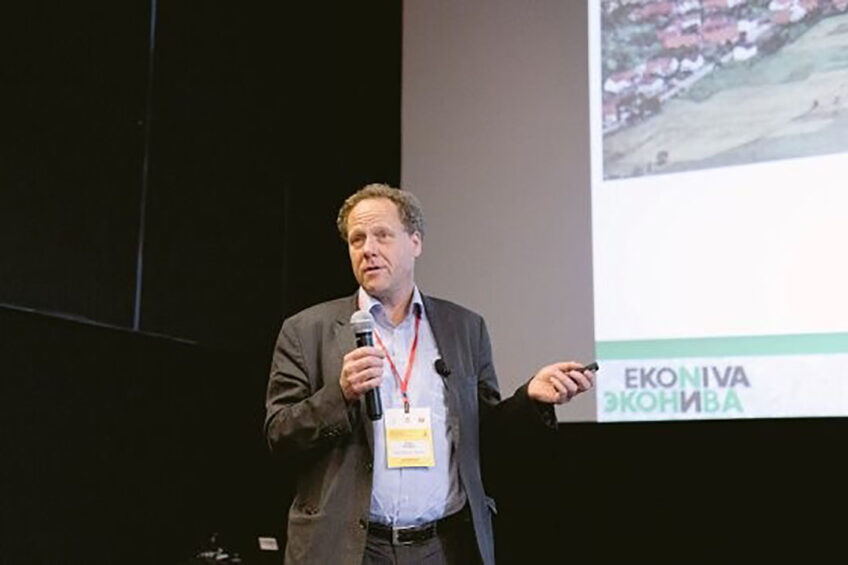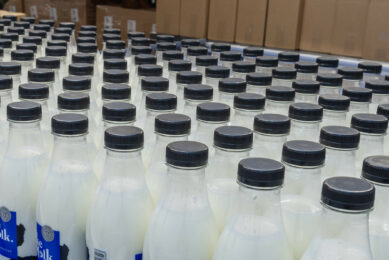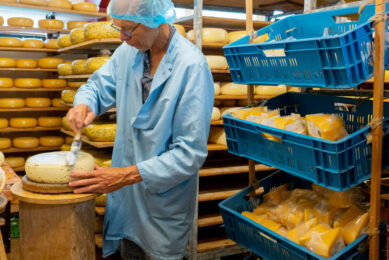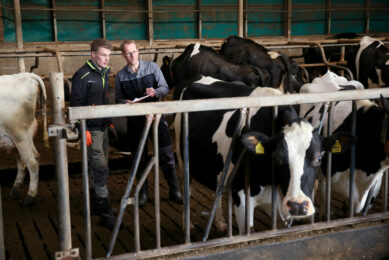EkoNiva CEO calls to preserve state aid for dairy farmers

The CEO of EkoNiva, Stefan Duerr, called on Russian authorities to preserve state aid for dairy farmers.
Speaking during Parliamentary hearings on 6 October, Stefan Duerr, the president of EkoNiva, a leading agricultural holding, called on Russian authorities to keep soft loans and partial reimbursement of capital costs under new Russian dairy farmers’ new projects.

The conditions on the Russian dairy market are complicated, and the country’s self-sufficiency with regard to dairy products is yet to be achieved, Duerr said. As long as milk production requires large turnover funds, soft interest rates on operational loans must be kept, he added.
Duerr urged the Russian Parliament to put ‘serious money’ into Russia’s rural territories development programme to improve the country’s agricultural infrastructure. This year, EkoNiva plans to produce 950,000 tonnes of milk and become the world’s fourth-biggest raw milk producer, Duerr added.
Currently the Russian Parliament is considering plans to cut the funding for this programme. According to the Russian State Duma’s speaker Vyacheslav Volodin, the authorities initially set the overall funding at Rub160 billion (US$2.2 billion) for 2021. However, in the draft federal budget for 2021-2023, this figure has been cut to Rub31 billion (US$400 million).
Russia: EkoNiva aims to become world’s biggest milk producer
The Covid-19 pandemic has not slowed down the expansion plans of Russian agricultural holding EkoNiva. The company continues to build new milk farms and dairy plants all over the country.
No more CAPEX reimbursement?
To some extent, the reduced funding may be linked to the Russian Agricultural Ministry’s plans to abandon capital cost, or CAPEX, reimbursement for new projects in the Russian dairy industry as of 2022.
The CAPEX reimbursement is a tool with low-effectiveness, Dmitry Patrushev, Russian Agricultural Minister, said during a government meeting in September. One Ruble of state subsidies allocated in the form of CAPEX reimbursement attracts, on average, 8 Rubles of private investments. On the other hand, one Ruble allocated to subsidize interest rate on short-term loans attracts on average 31 Rubles, Patrushev estimated.
The Russian government has been reimbursing about 35% of capital costs for new farm constructions. This support mechanism is also applied in some other segments of Russian agriculture.
Covid-19: Impact on the global dairy sectorThe coronavirus has had a huge impact on daily life from the man on the street to businesses. And the dairy sector, even more essential than ever, has not gone unscathed. Keep up-to-date.
The final decision on this issue is due to be taken in 2021, Patrushev said. He added that the Russian authorities need to abandon some part of state aid since the budget capacities are lower than expected.
New support tools to support the Russian agriculture segments
Nevertheless, even with abandoning CAPEX reimbursement, Russian authorities would have to introduce some alternative tools to support the Russian agriculture segments, where self-sufficiency has not been achieved yet, Patrushev said. So far, there is no information on what measures the government is considering in order to replace the CAPEX reimbursement.

More about EkoNiva
Join 13,000+ subscribers
Subscribe to our newsletter to stay updated about all the need-to-know content in the dairy sector, two times a week.










